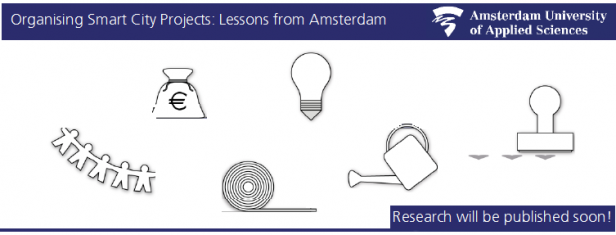Smart city projects show a broad diversity in partnerships, varying from fairly simple to highly complex, encompassing both small and large organisations. Based on the evaluation of smart city projects in the domains of Energy, Mobility and Circular Economy we found a great variety in the type of partners: public organisations (e.g. the city administration), private companies, utilities, non-governmental organisations (e.g. associations), knowledge institutions and citizens. In the Energy projects we analysed, the city administration was always a participant, often as initiator. In contrast, the Mobility projects are dominated by private partners, who were also their initiators. Salient is the prominent role of NGOs in the Circular Economy projects, both as initiator and as facilitator or as supporter. A key success condition is that the partners involved must agree that this project is valuable, and commit resources to it accordingly (co-financing, charging for products or services at cost, or committing in-kind hours). Most projects thrive though, by having one partner that can clearly benefit from the project: as owner of the project, he or she feels responsible for the process and its outcomes, takes initiative when the project struggles and is often also the project leader.
Together with a team of five researchers of the Amsterdam University of Applied Sciences (AUAS/HvA) we systematically analysed several smart city projects in Amsterdam. This post includes one of the key insights into the management of smart city projects. The report with all our findings will be published mid-November on the online platform Amsterdam Smart City.






Very much looking forward to read the report, and compare to experiences from Sweden and other places.
Mikael